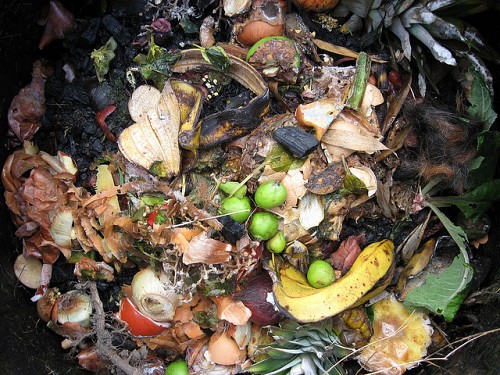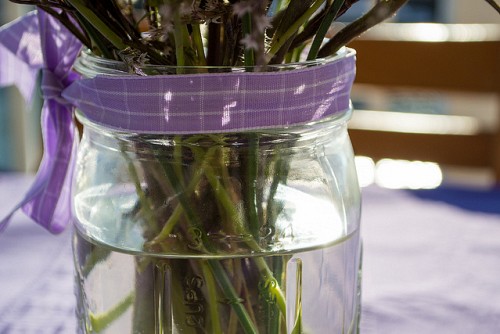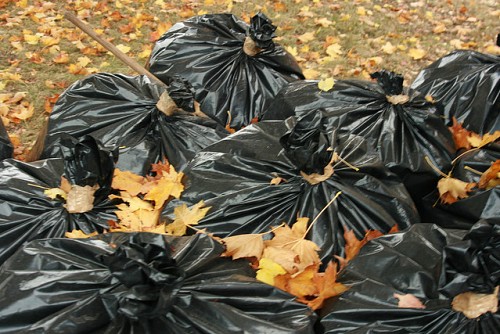11 Ways to Keep Your Garbage Down
If you pay for garbage service, that monthly bill can sting, especially with prices rising across the US, in response to both increased handling fees and programs encouraging people to cut down their waste production. The agony is even worse when you don't just pay for it but are also the one who takes your trash to the dump. Even if you don't pay for garbage service, reducing the amount of waste you generate ought to perk up your ears, because it makes a big difference to the environment.
Fortunately, those of us with years of rural living experience can bequeath some garbage reduction skills to you, because there are few things we enjoy less than taking a load of trash to the dump. Not only is it majorly gross, it's a sobering reminder of exactly how much waste we generate on an annual basis (over 4.4 pounds per person per day as of 2014!).
So, how can you get your trash habit under control?

1. Bring home less stuff
This might seem obvious, but it bears repeating. Everything you bring into your home needs to be processed in one way or another; if it can't be used up, recycled, or repurposed, where does it end up? The garbage.
Thus, buying jam in glass jars can be a good decision, because the jars can be sterilized and used for home canning, repurposed as storage containers, or turned to all kinds of creative crafting uses. Buying meat packed on a styrofoam tray? Not such a good call, because all that shrink wrap and styrofoam is ending up in one place: the trash.
Think about what you need and how you plan to use it before you buy, and try to avoid unnecessary products and packaging. Also, consider the waste stream of the products you're purchasing. Some industries are notorious for generating high waste volumes (for example, bleached virgin paper involves substantial resources to fell trees, process timber, pulp it, and bleach it to give your paper that gorgeous white color) and you might consider turning to alternate sources, like post-consumer products using recycled components.
2. Compost
There's no reason food scraps should be going in the trash (although composting fish, meat, and dairy is complex and isn't recommended unless you're an advanced composter). And yard trimmings should be composted too. But did you know there is a ton of other things that can totally get composted? Paper, cardboard, and fiberboard scraps, dust bunnies, hair, and more can all be appropriately disposed of in the compost.
Scared of compost, or don't have the room? Lots of cities, like Portland, offer curbside compost pickup and take greenwaste to a central processing facility. Others provide compost containers free or at low cost, along with a quick orientation, to residents who want to take up composting. Ask about composting programs in your area.
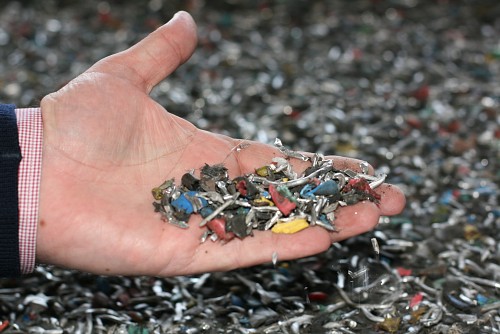
3. Recycle
Another one that might seem obvious in a recycling-heavy world, but hang on a minute. The number of recyclable things is a lot larger than you might think, and you might actually be able to get money for your recycling. In addition to curbside pickup, most cities have a transfer station that provides buyback and redemption credit for recyclables with the right markings, including glass bottles and some types of cans.
Not only that, but mandatory buyback and takeback programs for many items are in place in a number of states. That means instead of throwing something away, you can not only return it for recycling and processing, but also get some cash for it. Pretty cool, eh? If a required takeback program doesn't apply, a product might still have one through a manufacturer, dealer, or support organization. For example, old cell phones can often be given to domestic violence organizations, to provide clients with phones they can use for emergency calls (you can dial 911 from a cellphone even if it's not connected to an active network).
4. Reuse
Obviously, the most fun of all. It's easy to turn trash to treasure if you're motivated, and a lot of products can find new life as something else, or as a component of another thing you're using around the house. Before throwing items away, assess potential alternative uses.
For example, holey old socks are terrible for wearing, but they actually make great dust mitts. Slip one over your hand, run it along hard-to-dust surfaces, and watch the grime lift away! Likewise, ragged tees and other clothes can be cut into household rags for cleaning, woven into rag-rugs, and added to the stuffing of pet toys, allowing them to bypass the dreaded trashcan.
5. Compression central
Inevitably, you're going to generate some garbage. Give yourself some motivation by downscaling your trash service to the smallest possible container, so you'll be limited each week. If you end up with extra because of a special situation (like moving day), take the excess trash to the dump or consider asking for an additional can for just that week.
At the same time, compress your trash. Tightly-compacted trash obviously fills a can more slowly and allows you to waste less space. Turn dump trips to an every-six-months endeavor instead of every month, and prevent constant overflows from your trash bin every week.

6. Say no to rats (and other pests)
We all know that garbage tends to attract unsavory elements. By keeping a lot of waste out of your can, you'll make your garbage much less interesting to visitors like Norway rats. It's especially important to make sure food waste and trash contaminated with food never ends up in the can, because if it does, it will appeal to raccoons, skunks, cockroaches, and other creatures you definitely do not want stopping by. Remember that insects can show up anywhere, but they especially love old, established cities with a rich history; if you're enjoying a handsome pre-war home in Hyde Park, for example, you might need a Chicago exterminator to help you eliminate cockroaches and start with a clean slate.
A skilled handyman can help you build a trash enclosure that doubles as a sorting facility, giving you a chance to engage in last-minute interventions to keep things out that don't belong in the trash. Your enclosure should have high fences and locking doors to ensure animals can't get in and knock your cans over to get at the trash. If repeat pests are a problem, tie or lock the lids down to keep animals out.
7. Think outside the box
Many of us use specialty products that tend to generate a lot of waste in the form of packaging and other components, even though we don't really need to. For example, it's not uncommon for people to maintain a huge array of cleaning products with separate types for windows, counters, tubs and tile, and so forth. Did you know that you can use an all-purpose cleaner, including one you make yourself, instead? A jug of vinegar will meet a lot of cleaning needs, with a lot less waste.
You might be able to think of other ways you can cut down in your life, making fundamental lifestyle changes that reduce your impact on the environment. This won't just keep things out of your trash. It'll also reduce your ecological footprint and lighten the burden on the Earth.
8. Get out of the disposable mindset
Get things made to last, or to be recycled. That goes for products varying from fashion (so-called "fast fashion" is a huge industry for people who want cheap clothes, but these products tend to be poorly made and don't last well) to electronic components. While the up-front cost of durable goods is higher, the long-term costs are much lower, and your choice will definitely be better for the planet, too.
Think about the little things: buy a reusable mug to use for your morning coffee drink (most baristas are happy to take mugs from home!), acquire handkerchiefs instead of tissues, and pack silverware so you don't have to use disposables.
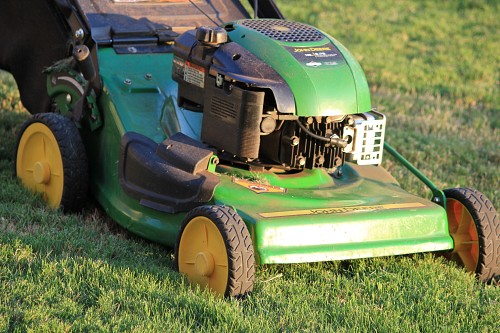
9. Get by with a little help from your friends
Ever need something for a project, but know you'll never use it again? Or find yourself wishing you had a somewhat expensive item that you can't really justify, but you could legitimately really use for a few days? Stop thinking that the only things you can use are the ones you own: expand into renting and borrowing.
Many communities have tool libraries, which offer free and low-cost loans of tools and other supplies. It's possible to rent products ranging from bicycles to tablesaws, along with smaller things you might need for projects. Your neighbors might also have something you could borrow, or they could be willing to pitch in on a purchase of a shared item; not everyone on your road needs a lawnmower, for example, if you can agree to split the maintenance and upkeep.
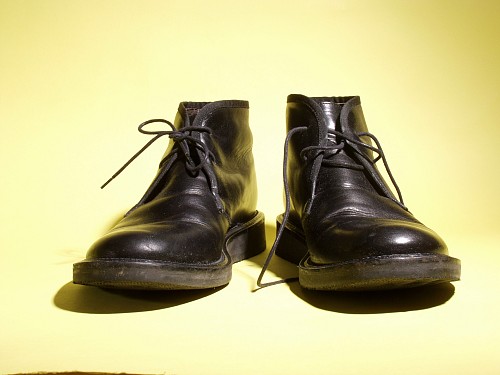
10. Maintain and repair
A lot of products fail because they weren't given the routine maintenance needed. Give the objects in your house a break by following product maintenance recommendations (like that 10,000 mile service for your car you've been putting off for 2,000 miles) and staying on top of painting, replacement of leaky faucets, and other chores. Preventive maintenance helps extend the life of your belongings and it also limits the risk of a costly repair...
...but if something does break, repair it! Resole your shoes, have a technician take a look at your computer, and reupholster that gross couch instead of kicking it to the curb. Repairing helps keep things in use and takes trash out of circulation, which is good for everyone.
11. Buy used, sell used, and donate used
If you can, consider buying something used. It won't directly control the contents of your trash can, but it will help keep things out of the waste stream. Likewise, you in turn can sell your own used goods to collect extra cash and keep them out of the trash. If you can't sell an item, consider donating it to a thrift store or similar organization. Your donations can make a big difference for someone else.
Did I mention they're tax-deductible?
s.e. smith writes for Networx.com.
Updated January 18, 2018.
Looking for a Pro? Call us (866) 441-6648

